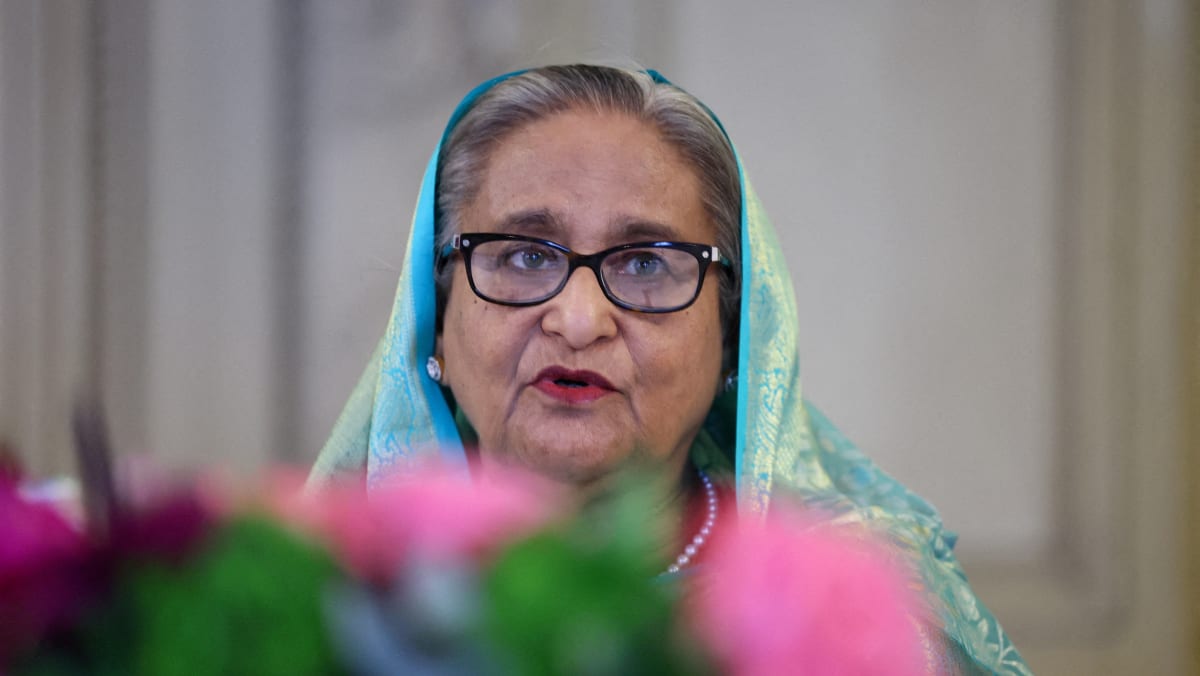“HOLD HER ACCOUNTABLE”
The 77-year-old’s last official whereabouts are at a military airbase near India’s capital New Delhi.
India’s foreign ministry spokesman Randhir Jaiswal, asked by journalists about the arrest warrant, declined to comment.
“She had come at short notice for safety reasons, and she continues to be in India,” he said.
Her presence in India – her former biggest benefactor – has infuriated the new interim government in Bangladesh.
Dhaka has revoked her diplomatic passport, and the countries have a bilateral extradition treaty which would permit her to return to face criminal trial.
A clause in the treaty, however, says extradition might be refused if the offence is of a “political character”.
Among those in court were family members of Sajib Sarkar, a medic killed in July during the protests against Hasina.
“We want the government to take the initiative to bring back the former prime minister as soon as possible and hold her accountable,” his sister, Sumaiya Sarkar, told AFP. “We are looking forward to a fair trial.”
The ICT is a deeply contentious war crimes court Hasina’s government set up in 2010 to probe atrocities during the 1971 independence war from Pakistan.
The United Nations and rights groups criticised its procedural shortcomings, and it became widely seen as a means for Hasina to eliminate political opponents.
Several cases accusing Hasina of orchestrating the “mass murder” of protesters are being probed by the court.
Hasina was replaced by Nobel Peace Prize winner Muhammad Yunus.
The 84-year-old microfinance pioneer is leading a temporary administration, to tackle what he has called the “extremely tough” challenge of restoring democratic institutions.
Yunus said he had inherited a “completely broken down” system of public administration and justice that needs a comprehensive overhaul to prevent a future return to autocracy.
Read the full article here
